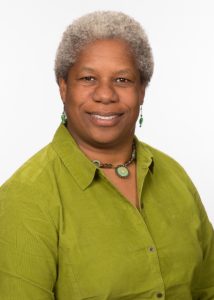Suria Bahadue, J.D. ’16

Suria Bahadue, J.D. ’16
I came to Harvard Law School because I want to help people. Previously, I worked as a paralegal at a large law firm. In that role, I worked on pro bono cases involving clients seeking restraining orders. Fortunately, my supervisors gave me substantial responsibilities, which included meeting domestic violence survivors, hearing their stories, and helping them write their affidavits. My supervising attorney and I won every case, leaving each client in a better position than before and fueling my desire to continue this work in law school.
Unfortunately, I lost sight of that purpose during 1L year. As one could imagine, my first year immediately subsumed me with grades, job applications and ideas of clerkships. My monotonous run through the law school grind ended, however, when I spent two semesters working in the Family and Domestic Violence Law Clinic.
I initially enrolled in the clinic because I felt my experiences as a paralegal prepared me well for family law cases. At the same time, I assumed that I would assist a supervising attorney rather than manage my own cases and clients. I was so happy to be wrong. On day one, I received my own cases and clients. My supervising attorney, Nnena Odim, instructed that it was my job to move the cases forward to resolution.

Nnena Odim, Senior Clinical Instructor and Lecturer on Law
My caseload included divorces, paternity actions, and restraining orders. Each day began the same: I would meet with Nnena and review each case’s posture. For each case, Nnena would conclude our strategy meeting by asking me about the “next steps.” By doing this, she taught me to develop as many options as I could and to prepare for a judge to ask me about every single one.
In short, Nnena taught me that successful legal practice requires over-preparation.
Significantly, my cases challenged me to consider myself as a practicing attorney rather than a student attorney. I represented clients in court multiple times; filed complaints for divorce, modification of child support, and contempt; interacted with opposing parties; negotiated with opposing counsels; conducted a direct examination in court; obtained a restraining order for a client; and drafted and finalized a divorce settlement agreement. One of the more memorable courtroom experiences occurred in a post-judgment action for contempt. The judge began the hearing by stating, “Counselor, how would you like to proceed?” It took me a few seconds to realize that he was talking to me and that I was a counselor and not a student.
Above all, the biggest lessons came from my clients. Their tales of bravery and survival reinvigorated my personal and professional goals. For one example, I worked with a client over my two semesters. She had fled her abuser after five years of physical, verbal, and emotional abuse, and lived in shelters and public housing shortly thereafter. We helped her obtain a restraining order and file for divorce. Over the last year, I watched her achieve so many milestones because of her courage to flee and seek legal recourse: she obtained citizenship; entered into a criminal justice degree program; began a new job; and settled into her first apartment. That client and many others helped me return to the reason why I went to law school in the first place: to help people.
I am forever grateful to the Family and Domestic Violence Law Clinic and Nnena for taking me out of the classroom and into the courtroom. The experience truly defined my three years at Harvard Law School.
Filed in: Clinical Spotlight, Clinical Voices
Contact Office of Clinical and Pro Bono Programs
Website:
hls.harvard.edu/clinics
Email:
clinical@law.harvard.edu